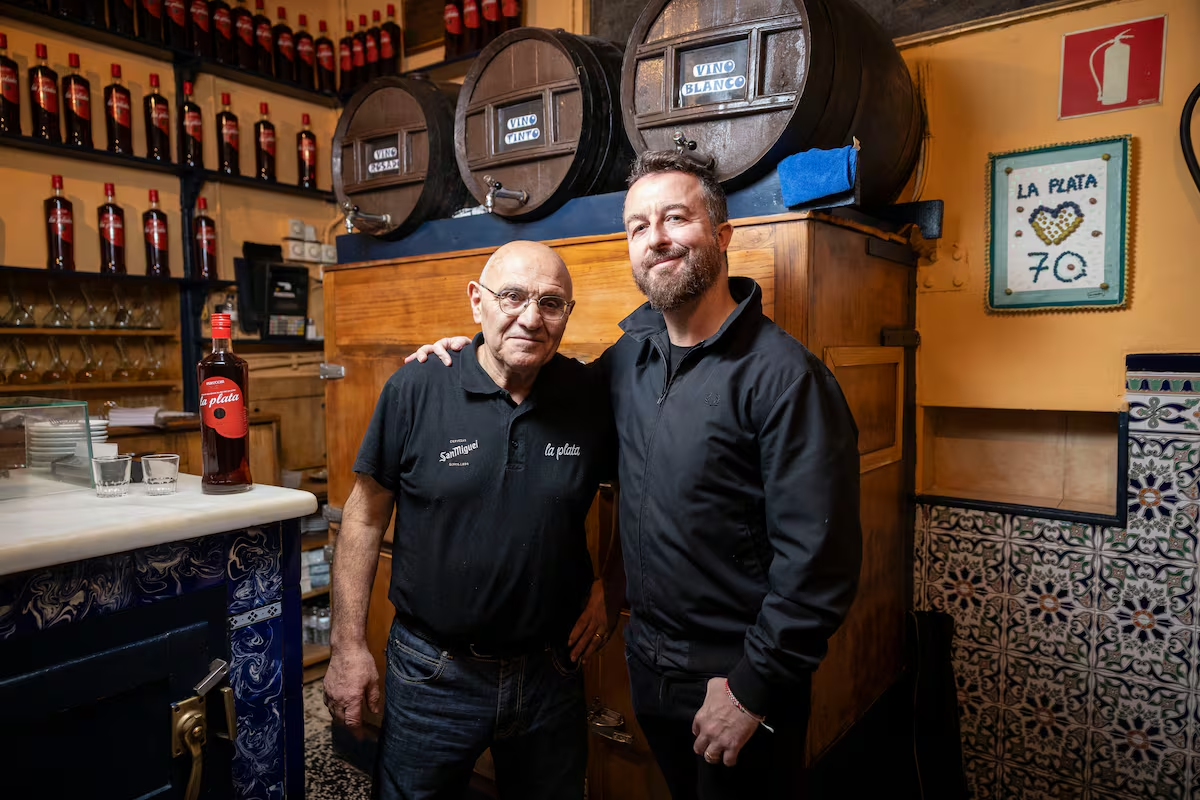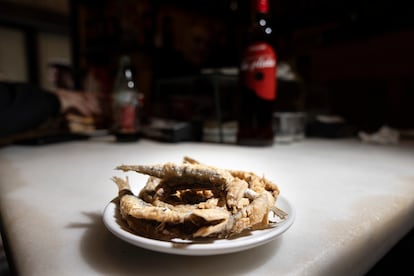
In the modern culinary panorama we could distinguish: approximately– three major trends: companies that pursue the banner of innovation in all its forms, those that seek to return to the roots of tradition and those that have insisted not to change, despite the constant temptations that the sector offers in the form of trends that come and go at the speed of light. La Plata is part of this last block: that of the custodians of the essences of the traditional bar. And this month they turn 80 with the same clarity of ideas and attitude as always.
“They all came here. Rosalía came, the mayor came, they all came. Bono (the singer of U2) also came, 20 or 25 years ago. He sat at a table with a very pretty girl. They told me: ‘hey Pepe, Bono came’. And of course I thought he was the minister. So I didn’t know him, but there was a guy who knew. The guy kept the song and came to the bar to tell me no. We would have said out loud that he was there. I replied that if it had been Fary or Manolo Escobar I would certainly have known him (laughs), but he didn’t know anything either,” says Pepe Gómez, who has been the captain of the most ferociously classic bar in Barcelona for fifty years.
La Plata is located in the heart of the Gothic Quarter, in Calle de la Mercè number 28, on the corner with Calle de La Plata and this month it celebrates 80 years of existence by doing (almost) literally the same thing they did when they opened in 1945: four tapas. “The sausage (2.50 euros), the fried fish (3.50), the anchovies (7 per portion and 2.50 for the montadito) and the onion and tomato salad (3.50). We are not moving from there”, replies Roger Pascual smiling when asked about the prices that seem unreal in 2025. Pascual is the man who now manages the daily management of the bar and has not deviated even an inch from the philosophy of a symbol of Barcelona in its simplest and cathedral aspect.
The bar was founded by his grandparents, Josep Marjanet, known as “Pepito”, and his wife Joaquima Planas, “Quimeta”. Marjanet had already worked for some legendary restaurants of the time such as Can Soteras and Can Tapias. It was in the latter that two regular customers lent him 34,000 pesetas so that he could realize his dream: founding his own business. The couple spent the next 10 years sleeping in the loft of the bar itself as they laid the foundations of a legendary venue.

From the beginning, given the proximity to the sea and the desire to be a refuge for the workers, they opted for a formula that was initially a little more ‘varied’: “In the morning we prepared fried eggs and things like that for the people of the port. Sandwiches for the employees, dishes for those from the Harbor Office who came to eat. Until the mid-1950s my grandmother went to the Boquería market and bought a few fish to fry”, says Pascual. “He thought it would be a good food for someone who arrived at six in the morning and needed to eat quickly and with substance.”
As if a light bulb went on, Pepito and Quimeta set out to find a good partner for the fish and decided that a tomato and onion salad would work. Then came anchovies (which they still clean by hand) “and in the 90s we incorporated sausage.” Since then they haven’t changed in the slightest, bringing together a clientele that ranges from the most local to the most international: from the guy who has been going there for 25 years to drink a glass of wine to the tourist who goes to take a selfie with their sign. Because La Plata is an essential recommendation for anyone who wants to know what Barcelona was like before globalization arrived and all the streets everywhere were exactly the same. “I like to think that we need to preserve the culinary memory of the city and we are an important part of it,” adds Pascual.
The desire not to give in to the siren song of progress has earned them a reputation that few bars can boast in the capital of Catalonia: “Ferran Adrià has been our prescriber for many years and always says that he considers La Plata a magical place; his brother Albert often reminds us that in a landscape where nothing lasts more than a decade, having a bar open for 80 years within reach is a miracle. I don’t think he’s right”, explains Pascual smiling. from ear to ear. The older locals, one of the reasons that sustained the fame of La Plata was the creation of the so-called Street of the Elephant’s Trunk: “In the 1960s there were many bars between Ample and Merçè streets and in each they served a strong dish. Ours was fried fish and for a period they also called us ‘Los Pescaitos’. This made them understand that it worked very well for them. There is a phrase from my grandmother, who was a person without any kind of culinary education and which I think sums up our philosophy very well: “I would rather do four things well than twenty things badly”.
Anna Marjanet, the daughter of the founders of La Plata, who after 35 years of service at the bar is retired (although everyone still calls her “boss”), continues to visit the place: “La Plata is my life, I have been coming here every day since I was born and that we continue after 80 years is a reward for the sacrifice of my parents. It is also nice to receive the affection of so many people, of our customers, of our workers, of all the people who have worked with us and of this city And of Pepe, who has been with us for 50 years: 50 years!
Pepe himself concludes: “Retire? Absolutely not. I enjoy every day. I am 69 now and could have been retired for four years, but La Plata is my family, they have always treated me wonderfully well and every day I enjoy coming to work. I know one day it will end, but at the moment I don’t think about it. As long as my body holds up I will be here: I have no intention of going anywhere.”





